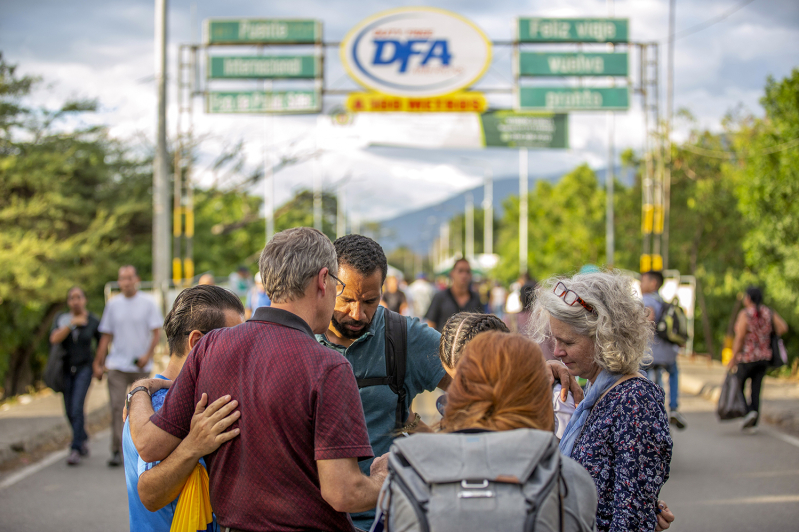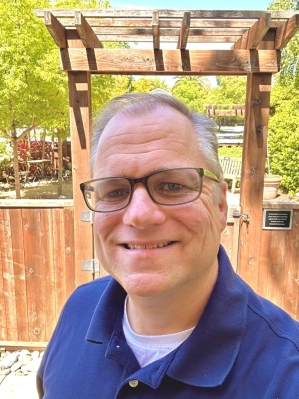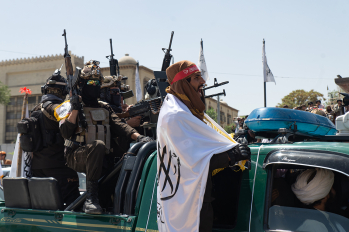
On the occasion of World Refugee Day that is commemorated today (June 20), Christian Daily International spoke exclusively with a church pastor and immigrant advocate in northern California. He believes overcoming fear and seeing migrants as sent by God to the local church as key to fulfilling the global Church's mission of welcoming the stranger and sharing the gospel.
Born in New Orleans and raised in Mississippi, Alan Cross pastored a church in Montgomery, Alabama before moving to Petaluma Valley Baptist Church in the town of Petaluma, Sonoma County in 2019. He is the author of ‘When Heaven and Earth Collide: Racism, Southern Evangelicals, and the Better Way of Jesus.’
Cross has seen the fear in people when migrants, with different languages, customs and cultures, arrive in a town. He has studied the interaction between churches and migrants all over the world, in places nearby such as Mexico, to further afield in Europe and even all the way to northern India.
“I think it is difficult for people when other people show up in their town,” Cross said. “There is a fear, an awareness of a lack of facilities for people coming in, and a nervousness, but whenever relationships are built, the fear goes down. The understanding grows and compassion happens between people. And that can be facilitated.”
Cross believes that Jesus is the answer to any of these issues, helping people to be cemented and bridging the gaps.
“Churches, whenever there is this awareness, see people coming to them as led by God, and then they serve their needs.”
He gave an example of a pastor in Mexico whom he visited several years ago. This church leader had paid scant attention to the regular influx of refugees arriving in his town until Cross pointed out the spiritual reality of seeing these people as being sent by God to the church and looking at them in a missional context.
That raised a question as to whether the church was welcoming and helping these strangers practically, as well as sharing the gospel with them. “The pastor had never thought of that before,” remarked Cross. “He was not resistant to the idea, he had just been seeing it in a geopolitical way. But with the shift of this conversation with him, he saw the mission. He got it!”
Churches are thus not deliberately indifferent to migrants, according to Cross, they just need a deeper revelation that people coming into their villages, towns and cities from different cultures and languages are, in themselves, a mission field.
Immigrants look for security and stability, Cross commented, and that is exactly what churches can offer. “People are often trying to get out of danger and the church can be a place of refuge.”
“If we see churches having the opportunity to humanize these people and show them compassion, that is part of the mission of the church. The local church cannot solve the whole problem but they can receive those whom God sends to them with the resources that they have.”
That is why, Cross added as an aside, it is often better for churches to work with one another in welcoming refugees, because sharing resources creates a stronger compassion framework.
“Churches cannot solve everything but they can witness into the problem, even if it means bringing the gospel to just one migrant in need.
“And for the larger problems [about the global migrant crisis], it’s about being part of the solution, so thinking ‘how can we be part of that?’”

Cross believed that borders and security, a commonplace political concern, mean cruelty if there is no compassion. He said it worked the other way around too – he has seen churches nearly collapsing from organizational pressure by adopting a role as refugee centers. There needs to be a good order in the compassion equation.
“It’s about treating people as human beings, looking at the person and helping them within whatever context we can.”
Cross is not convinced that either of the two main U.S. political parties, Republicans or Democrats, took the issue of refugees seriously.
“Things are so polarized and it’s split down the middle on both sides. They use the issue as a weapon but neither side is solving the crisis, they’re just picking it up as an aspect.”
Cross saw extreme elements in both parties with a “lack of seriousness and urgency” in the forthcoming presidential elections and pointed out it is impossible to have compassion without security and there is no security without compassion.
He hoped politicians would treat people with more dignity, employing the virtues of order, security and loving care.
“Asylum has been taken advantage of and the system needs to be reframed. We need to have order and security to make the system work properly but also treat people with dignity. People are made in God’s image so it’s about showing order but also compassion.”
Practically, Cross has seen churches helping in ways such as meeting refugees at airports, helping them settle into accommodation with food and drink, arranging language translation even by using smartphones, supporting them with job applications and showing general, welcoming hospitality. He recalled churches in Tijuana, Mexico, who were doing just that: “opening up sanctuaries.”
“Every location setting is different,“ Cross said, “but it’s about building relationships, and seeing what God does in that.”
The church in northern California that Cross leads is not located within a migration route but it has still seen its membership grow with about 30 percent comprising immigrants from all over the world, including Hispanic, Asian, and African, among others.
“We value people and their culture, and where they are from. You try to work out what community is. We don’t make people come to church.”
Some Afghan refugees arrived in the local town a while ago and Cross knew they would only eat Halal meat. He drove 40 miles [64km] south to Oakland city and bought lots of food from an Asian restaurant to have a welcome barbecue, with food the refugees felt comfortable eating, involving 30 people at his house. It is an example of cultural sensitivity, which Cross believed is essential in outreach to migrants.
“Churches all over the world have a very important role, not just in sending people out with the gospel but in receiving the people that God sends to them. Churches should be looking for these people that God sends to them, whatever cultural background they’re coming from.
“You can build something new together. Be active in looking for the people that God sends to you, and receive them, and then potentially become a new church with that participation.”





